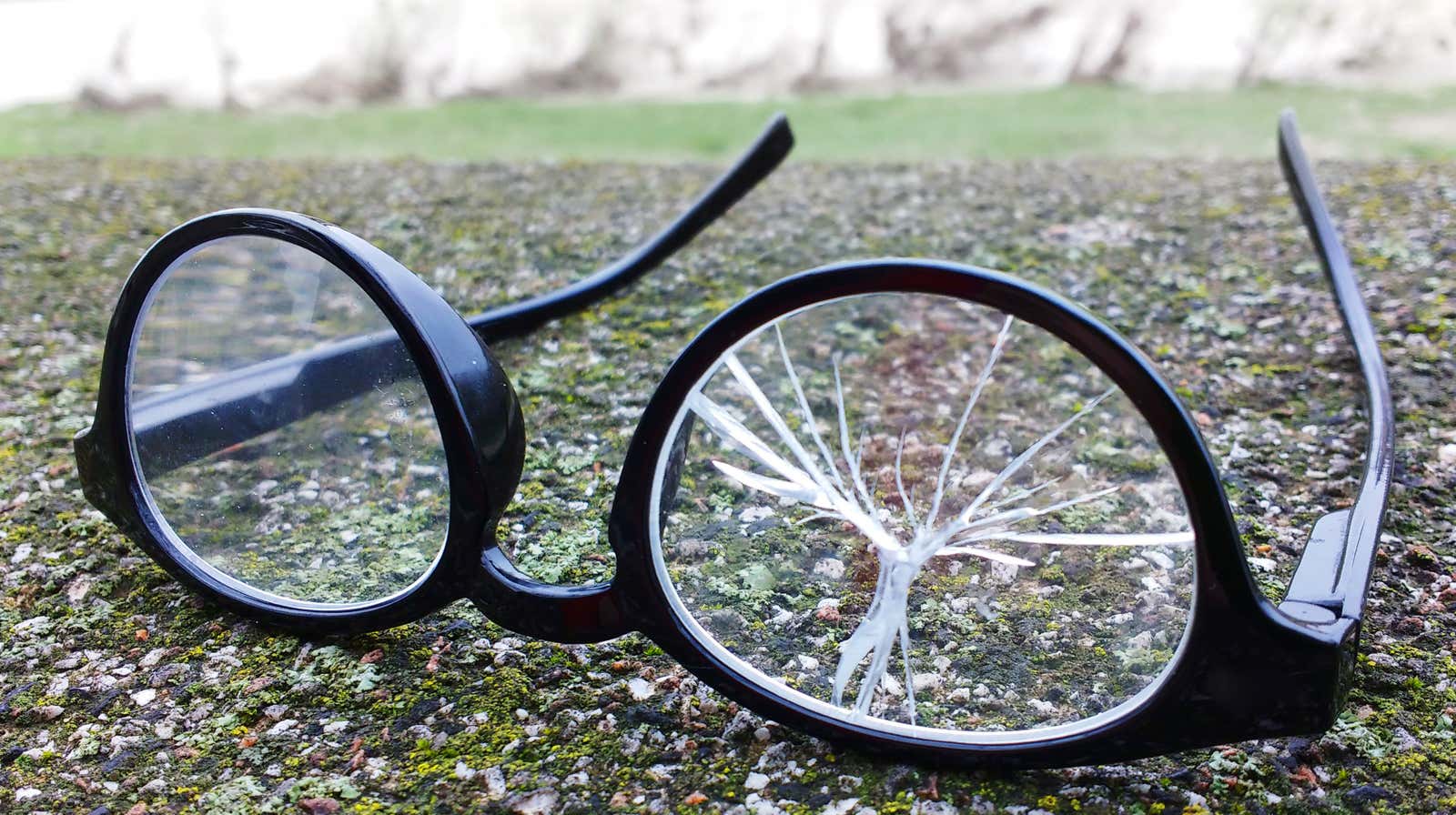Be Prepared for Glasses to Inevitably Break.

You step on your glasses in the middle of the night. Or a house fire melts the frame of your glasses. The tornado rips your glasses right off your face. Or the pandemic gets worse, your glasses break, everything turns off, there is no way to get a replacement. As an eyeglass owner, I thought about all these possibilities and more. Perhaps you have too, but you haven’t yet taken steps to prepare for a potential glasses-free future. Let’s fix this.
Stock up on glasses
Glasses can be scratched and shattered, so you should have multiple pairs. I now have five pairs at my disposal. Sure, glasses can be too expensive and prescriptions can change, but an old prescription is better than nothing in emergencies, so save it when you get a new pair. Store extra vapors in your bag, on your desk, and in your car. And if you have an emergency suitcase, be sure to keep your glasses there.
When traveling far from home, take a couple extras with you on your trip, separating them as if they were the president and vice president leaving the capital. This is especially useful if you are camping, hiking, boating, or somewhere else far from home (or from an optometrist).
Prevent scratches
Whenever possible, get scratch-resistant lenses and use only a suitable material, such as a microfiber cloth, to clean them. Eye Buy Direct warns against cleaning your glasses with a shirt, as clothing fibers can damage your lenses more than you think; paper towels and napkins can be even worse.
In an emergency, you can use dish soap and warm water to clean your glasses without scratching the lenses. Using your fingertips, apply a non-lotion dish soap to the lenses, then rinse them with warm water.
You will also need a matching glasses case, which can range from cheap plastic to expensive leather. You should always have an extra empty case when you travel from home, as well as an eyewear repair kit that includes small screws, a screwdriver, cleaning cloth, nose pads, and a magnifying glass. You should have two sets for each pair of glasses, and keep them together with pairs of glasses for emergencies. You will never be left without glasses or a simple gadget when you need it.
Plan for the worst case scenario
During tough times, you can use white glue and magazine paper to temporarily glue the broken eyeglass bridge by cutting the magazine paper into horizontal strips, adding glue and layering them on both sides. The glue and newspaper can form a papier-mâché bunch that lasts a short time before reaching one of your spare pairs. Likewise, if you lose your goggle screw and need a MacGyver in an emergency, you can use tweezers to insert the twist tie into the screw hole.
Know how to manage backup contacts
Contacts are incredibly convenient in everyday life, but in the event of a disaster they can become a hindrance, as they require clean water and an antibacterial solution. Without clean contact lenses, your eyes are prone to infections such as bacterial and fungal keratitis .
If you don’t have contact solution, an antibacterial liquid will help, but soap and water are the best alternatives . However, stocks of contact solution are obviously the best option, whether you’re camping or just stuck inside during a worldwide pandemic. “An eye infection is likely to be your biggest threat when you face the contact apocalypse,” says Dr. Kugler , a specialist in LASIK and vision correction surgery.
Unfortunately, contact lenses do run out of useful life: pairs of open disposable contacts can last from one day to one month, and hard contacts can last up to a year or more . An undisclosed bundle of contacts can last up to three years . So if you are putting contacts aside for use in a binding, be sure to keep track of when they expire. And keep your glasses with you. Maybe several pairs.